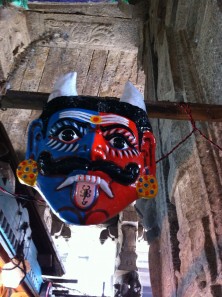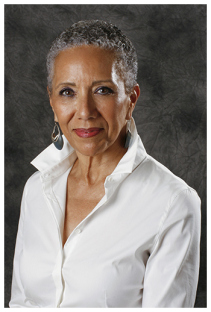“Rather than demonize difference, yoga invites us to engage, embrace, and celebrate it. Yoga means union, the connection of body, heart, and mind, the connection of breath to movement, the connection of one human being to another. It is an invitation to intimacy with oneself and of connection to others.”–Gail Parker

Like the Suras and Asuras, we live in a complex world of difference that today, in a positive way, we would call diversity. We are members of a global community, different from each other but not separate. Instead of seeing our own views as the totality of the human experience, yoga offers the view of the human race as one family, each member with his or her own unique contributions, gifts and talents that need to be tapped, developed and shared.
We are not all the same. We don’t look alike, think alike, talk alike or act alike. We are not one. But unlike the Suras and Asuras who kept their distance from each other, yoga asks us to join together to get to know, honor, celebrate and share our perspectives and experiences with each other. It invites us to enter into relationship with that which is unfamiliar and “not like me” even if it makes us uncomfortable.
The negativity of sameness ruptures connection. There are two forms this negativity can take. First there’s devaluation of your self or someone else. Then there’s an elevation of your self over someone else. When we regard those who are different from us from a superior position, we annihilate them. When we regard our difference as a sign of inferiority, we engage in self-abuse. We feel like victims, and we annihilate ourselves.
We don’t have to deny difference to keep from demonizing it. Our differences are part of what make us unique. But while we have different interests and backgrounds, we share a common humanity. Acknowledging differences does not have to divide us; in fact, acknowledging our differences can help us develop closer bonds through mutual understanding and respect.
Because of differences in national, cultural, gender, racial, ethnic and religious identity, and due to differences in sexual orientation, ability, disability, age, body size and learning styles, a person’s frame of reference and perspectives may be different from but no less valid than your own. Let us learn and then teach each other to embrace the totality of the human race as one’s own people, as members of the human family, no matter who they are or where they come from.
The pre-conditions of a functional community require that each of us value one another. We do this by:
Getting to know those who are different from us
Acknowledging each other’s differences
Affirming each other’s differences
Advocating for each other’s reality and potential
Sharing our gifts and talents
Respect for difference asks that we recognize that different does not mean better than or less than. It is not something to be hated, feared or eradicated. Different just means different. Engaging, embracing, and celebrating difference is our yoga.
Namaste
Don't Demonize Difference

